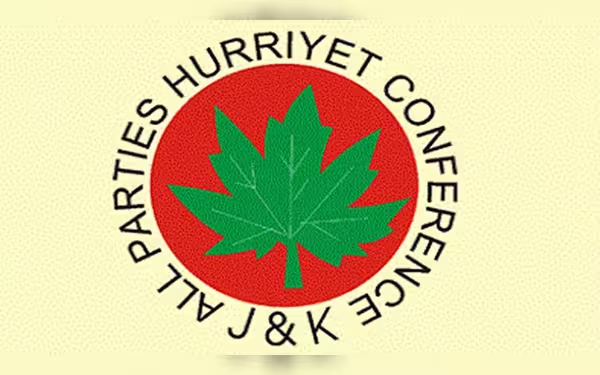Saturday, November 16, 2024 06:29 PM
APHC Urges Global Powers to Address Ethnic Cleansing in IIOJK
- APHC condemns human rights abuses in IIOJK.
- Indian government accused of ethnic cleansing.
- Kashmiris face oppression and mass arrests.
 Image Credits: radio.gov.pk
Image Credits: radio.gov.pkAPHC calls on global powers to intervene against alleged ethnic cleansing and human rights violations in Indian Illegally Occupied Jammu and Kashmir.
In recent years, the situation in Indian Illegally Occupied Jammu and Kashmir (IIOJK) has drawn significant international attention. The region, which has been a point of contention between India and Pakistan for decades, has seen a rise in tensions and human rights violations. The All Parties Hurriyat Conference (APHC), a coalition of pro-freedom parties in Kashmir, has been vocal about these issues, particularly under the current leadership of Prime Minister Narendra Modi. The APHC claims that the Indian government is engaging in what they describe as "ethnic cleansing," a term that underscores the severity of the situation.
Recently, the APHC convened a meeting in Srinagar, where leaders expressed their deep concerns regarding the ongoing human rights abuses in IIOJK. They highlighted that the Modi-led government has effectively turned the region into an "open prison." This alarming statement reflects the sentiments of many Kashmiris who feel trapped and oppressed in their own homeland. The leaders pointed out that the Indian authorities have intensified their operations, conducting frequent cordon-and-search missions that often lead to mass arrests and property seizures.
The APHC's condemnation of these actions is not merely a political statement; it is a call to action for global powers to intervene. They urge the international community to take notice of the situation and to pressure New Delhi to halt its alleged campaign against the Kashmiri people. The leaders emphasized that the ongoing violations are not just attacks on individuals but are part of a broader strategy to suppress the Kashmiri identity and culture.
As the world watches, the plight of the people in IIOJK remains a pressing issue. The call from the APHC for global powers to act is a reminder that human rights should be a priority for all nations. The situation in Kashmir is complex, but at its core, it is about the fundamental rights of individuals to live freely and with dignity. The international community must not turn a blind eye to these violations, as doing so could set a dangerous precedent for how human rights are treated worldwide.
The ongoing crisis in IIOJK is a stark reminder of the importance of vigilance in protecting human rights. The APHC's appeal to global powers is a crucial step in raising awareness about the situation. It is essential for individuals and nations alike to stand up against oppression and advocate for those who cannot speak for themselves. The future of Kashmir hangs in the balance, and it is up to the global community to ensure that justice prevails.













